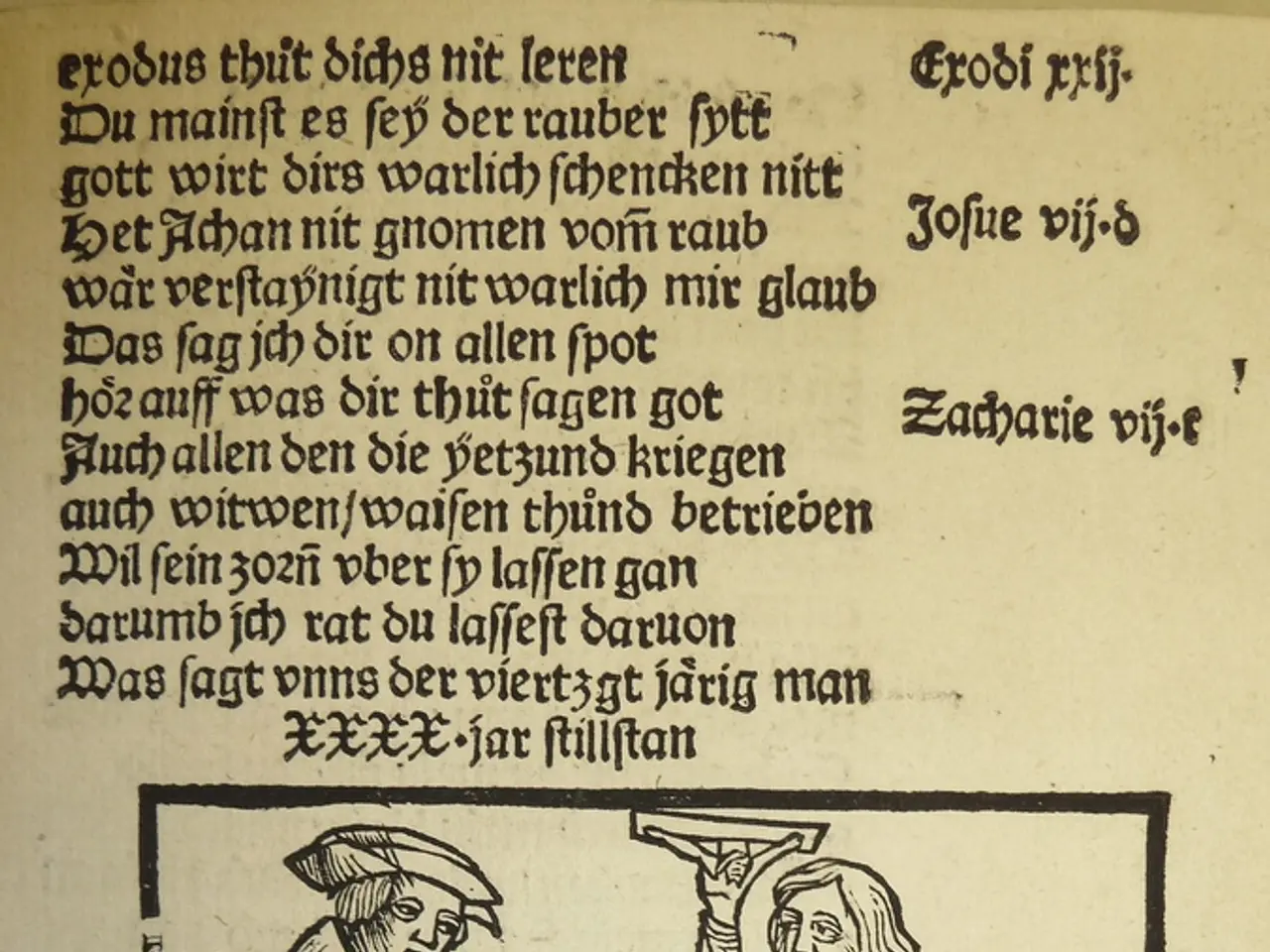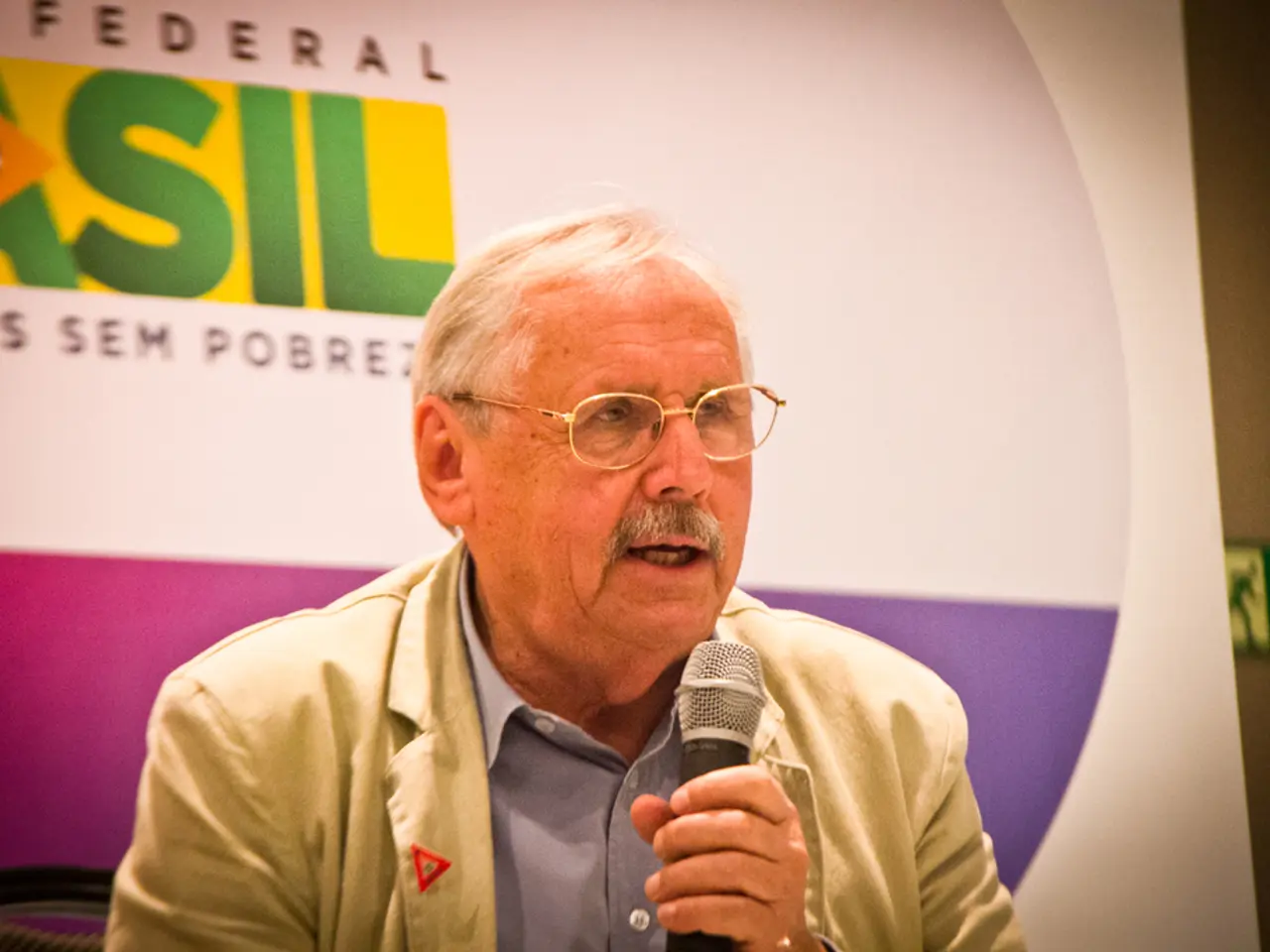Russia's Leader Endorses Foundations of National Language Strategy
In a significant move, President Vladimir Putin signed a decree on July 11, 2025, outlining the main directions of Russia's state language policy. The decree, published on the official website of legal acts, aims to preserve, develop, and promote the Russian language both domestically and internationally.
The policy emphasizes the Russian language as a foundation of Russian statehood, deeply intertwined with traditional Russian spiritual and moral values. It seeks to reduce the use of foreign words in Russian, promote the use of Cyrillic script for all peoples of Russia, and affirm the high social value of Russian linguistic culture and literacy.
One of the key aspects of the policy is the promotion and international dissemination of the Russian language. The decree also mandates developing alphabets of minority languages within Russia on a Cyrillic basis to support state languages of the republics (e.g., Tatar, Bashkir) and other indigenous languages.
The policy further requires that public signage and labeling be in Russian Cyrillic by March 2026, with limited exceptions. It symbolically prioritizes Russian as the core state language while nominally recognizing all languages (with an implicit hierarchy).
The decree also addresses threats in the sphere of state language policy, identifying attempts to restrict the use of the Russian language by some foreign states and the unjustified use of foreign words in official communication as such threats. It guarantees all Russian citizens the right to use their native language(s).
The policy reflects a combination of language preservation, cultural assertion, and linguistic unification through Cyrillic, consistent with a broader socio-political agenda to strengthen Russian identity and influence.
Notably, the decree does not mention any specific foreign states or ideological concepts that contradict traditional Russian spiritual and moral values. No specific changes or updates to the state language policy regarding military service in Russia were provided in the decree. The document also does not mention any potential impacts on Russian culture, including Russian literature, or Russian mass media.
The decree was reported by RIA Novosti, but no information about any potential reactions or responses to the decree was provided. Similarly, no information about any specific foreign words that are being used in official communication or not included in normative dictionaries was provided in the decree.
In conclusion, Russia's new state language policy, as outlined in the decree signed by President Putin, seeks to strengthen the Russian language and its cultural significance, while promoting linguistic unity and preserving minority languages within the country. The policy is part of a broader socio-political agenda aimed at strengthening Russian identity and influence.
The policy-and-legislation on the state language aims to prioritize the use of the Russian language in official communication and public signage (politics), emphasizing its cultural significance and role in preserving traditional Russian values (general-news). The decree also seeks to support the alphabets of minority languages within Russia, following a broader socio-political agenda to strengthen Russian identity and influence (general-news).








